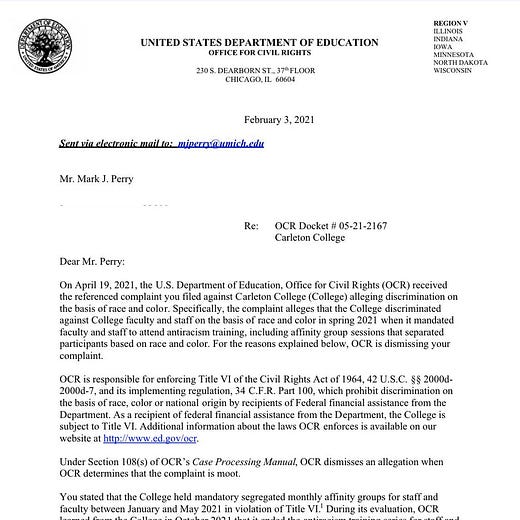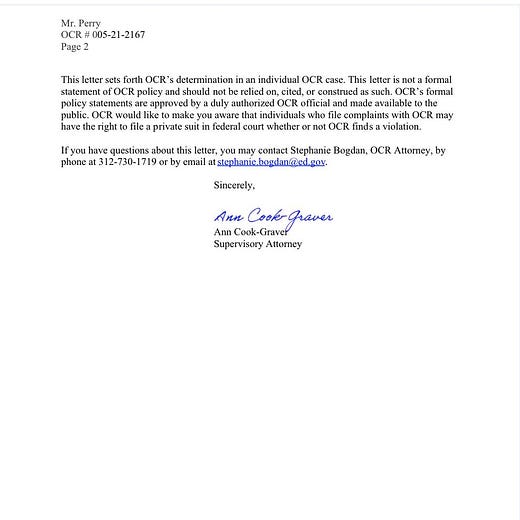E-Pluribus | February 9, 2022
Keeping medical care apolitical, cancel culture's powerless victims, and one cheer for Spotify.
A round up of the latest and best writing and musings on the rise of illiberalism in the public discourse:
L.S. Dugdale: The Doctor Will See You Now—Wait, Not You
Little dispute remains over whether or not the COVID-19 pandemic has been politicized - the debate is over which side is guilty of it. L.S. Dugdal, director of the Center for Clinical Medical Ethics at Columbia University writes at the Wall Street Journal that, perhaps more than anyone, doctors need to remain above the fray.
Some argue it is ethical to decline to treat those who refuse the Covid jab. Prohibiting unvaccinated patients from entering clinics protects both healthcare workers and high-risk patients and can motivate patients to accept the vaccines.
It seems logical that refusing to treat the unvaccinated will reduce harm and promote good. But ethics is far more complicated than a simple calculation of risks and benefits.
[ . . . ]
But refusing to care for the unvaccinated can itself inflict harm. Nearly 1 in 5 healthcare workers have left their jobs during the pandemic. Nursing shortages abound. There’s no guarantee that patients dismissed by one clinician will find another. Patients may not be able to fill prescriptions or manage chronic conditions. Many will eventually wind up in the hospital, which can only worsen staffing and supply shortages. Doctors who seek to punish the unvaccinated end up punishing their own colleagues.
What’s more, refusing to treat patients amplifies divisiveness at a time when cultural and ideological divisions seem stronger than ever. Researchers at Northeastern University have shown that people who perceive higher levels of partisan polarization are at greater risk for depression and anxiety. The pandemic has already taken years off our lives. Physicians who choose the partisan route of abandoning the unvaccinated risk worsening the nation’s physical and mental health.
Read it all here.
Zaid Jilani: The Powerless are Hurt Most by “Cancel Culture”
One of the paradoxes of cancel culture is that some of the most high profile targets are largely immune from cancellation. While this does not excuse the illiberal impulses that provoke such incidents, it can obscures the real cost, which, as Zaid Jilani writes at Persuasion, is incurred by the less powerful and lesser known people who are similarly targeted but often have limited means of fighting back or weathering the storm.
[H]ere’s the problem: While Rowling and Chappelle can continue to speak freely and don’t have to worry very much about their livelihoods due to their amassed wealth and fame, not everyone is so lucky. The increasingly censorious climate in Western liberal societies like the United States, Canada, and the United Kingdom hurts those who are most vulnerable.
In July of 2020, I wrote in Persuasion about a Hispanic electrician working for the San Diego Gas and Electric company who was fired for cracking his knuckles in a photograph because a social media mob believed he was flashing a white power sign. This man lacked the fanbase of a Rowling or a Chappelle, who could have risen to his defense and easily debunked the smear; he also didn’t have access to a mountain of lawyers or public relations specialists who could have held his employer accountable or pushed his side of the story in the media. Father Daniel Moloney, an MIT chaplain who was pushed out of his job for expressing skepticism about the role racism may have played in the death of George Floyd, was similarly unprotected.
It’s ordinary workers and people who lack fame and fortune who suffer most from a culture that has become increasingly quick to judge and equally reluctant to forgive. Chappelle doesn’t have to worry about receiving weeks of negative media coverage because he has a global fanbase in the millions. He’ll always have a way to continue to make money and receive adoration. It’s very different if you’re a normal person who found yourself in the crosshairs of a social media mob that makes a snap judgment about you and demands your complete and total defenestration.
Read the whole thing.
Rich Lowry: Spotify Shouldn’t Accept the Premises of the Cancelers
While praising (somewhat faintly) Spotify’s CEO for not dumping Joe Rogan, Rich Lowry at National Review says that Daniel Ek’s kneejerk obsequious response to the ruckus raised by his own employees betrays an acceptance of the premise of the agitators. Lowry says Ek’s response will only encourage more of the same.
The CEO of the streaming company, besieged by a highly motivated cancellation mob out for podcaster Joe Rogan’s scalp, apologized to his employees in a statement for “the way The Joe Rogan Experience controversy continues to impact each of you.”
According to Daniel Ek, the Spotify team has been left “feeling drained, frustrated and unheard.” Yes, following inane and hysterical commentary on Twitter, Instagram, and other social-media platforms about the alleged evils of a podcaster who interviews people and listens to their views, then posts the recordings for other people to listen to as they choose, must be wrenching.
To his credit, Ek hasn’t canceled Rogan, and he backed free speech, although from a defensive crouch. Indeed, his groveling, cant-filled missive is characteristic of such statements by organizations under pressure to suppress unwelcome views. They almost always accept the premises of the cancelers and treat the aggrieved as delicate hot-house plants on the verge of collapse if they don’t get their way.
Is it too much, for once, for people in a position of supposed authority to tell the offended to get over it and buck up like adults living in a free society? Ek’s statement suggests the answer is still “yes.”
He assured Spotify employees that he’s thinking about “what additional steps we can take to further balance creator expression with user safety.” He promised to consult outside experts on this question. He also pledged to devote $100 million, equal to the amount Spotify spent on its licensing agreement for Rogan’s podcast, on licensing, developing, and marketing music and audio content from “historically marginalized groups.”
[ . . . ]
The pledge of $100 million for more content is at least a gesture toward the notion that the solution to speech you don’t like is more speech. Yet, it reeks of a shakedown and an implicit bargain throwing resources at the would-be cancelers of Joe Rogan so they will go away and try to cancel someone else.
Read it all.
Around Twitter
Via the Foundation for Individual Rights in Education, some excerpts (click here for it all) from a thread on “hate speech”:
Another successful challenge of a racially-segregated training program to… fight racism, via Christopher Rufo:
On PBS, Thomas Chatterton Williams argues that the “wokeness” of Democrats in general is exaggerated by a very online fringe that dominate social media:
And finally, our January 31st Around Twitter ended with this from Colorado State University:
Someone fixed it, for the win:











